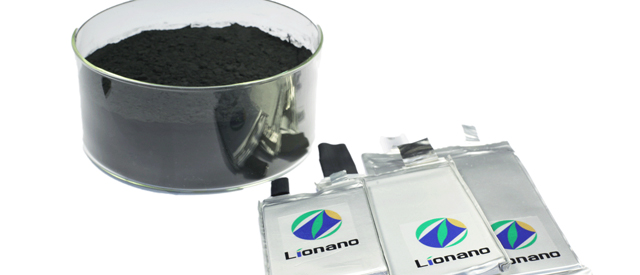Better Batteries for Electric Cars
Thomas Edison struggled with creating an electric car battery that would provide energy over time. With assistance from PowerBridgeNY, a startup may have solved this dilemma.
We may think of the technology behind electric cars as a relatively new innovation, but at the turn of the 20th century battery-powered vehicles accounted for approximately one in every three automobiles on the road.

Luminaries like Henry Ford and Thomas Edison were keen on improving electric cars and car batteries, but encountered setbacks still seen today-namely, how to design a battery that can provide more energy over longer periods of time, and at a lower cost. Ford and Edison weren’t able to solve this problem, but with assistance from PowerBridgeNY, a proof-of-concept center funded by The New York State Energy Research and Development Authority (NYSERDA), the startup company Lionano is working to improve lithium-ion batteries and pave the way for greener electric cars.
According to Lionano co-founder Alex Yu, PhD, a significant problem with implementing lithium-ion battery technology in electric cars is due to the energy density necessary to power a vehicle over longer distances.
“The current Chevy Volt can only run about 53 miles on a battery alone, while the Nissan Leaf is up to 107 miles on a battery alone,” Yu explained. “This may not be enough energy to power a vehicle for commuters who travel longer distances to work.”
Newer automotive manufacturers like Tesla Motors have greater efficiency when it comes to mileage range on a single battery charge, but cost significantly more than other makes and models. There is also the issue of the life cycle of lithium-ion batteries for use in cars, which degrade over time.
“Think about your cell phone-if you charge it every single day, it will last through about 1,000 charging cycles or three years. At that point, you’re likely to buy a new phone. That’s fine for cell phones, but most people don’t buy a new car every three years,” Yu noted.
While completing his doctoral studies in chemistry at Cornell University, Yu learned about the PowerBridgeNY program that functions as a boot camp of sorts to help scientists and researchers transition their clean technology innovations from the laboratory to the marketplace.
In 2014 Yu and his team, including members Siyu Huang and Héctor D. Abruña, were awarded a Cycle One grant from the proof-of-concept center to validate and market lithium-ion batteries that were more efficient and longer-lasting than other models available in consumer and commercial products. The end result is a proprietary nano-engineered material for lithium-ion batteries with twice the energy density and 2-3 times the cycle life of comparable batteries, at half the cost.
According to Yu, the support that PowerBridgeNY provided to the Lionano team by connecting them to customers for feedback on the industry overall and the specific product was particularly illuminating and invaluable to the process. Thanks to this funding and guidance, Lionano has passed both the technology validation and prototype stages, and is actively seeking investment capital and licensing agreements to increase production.
Going forward, Yu believes that transportation will becoming truly “electrified” as the technology becomes more viable for a wider audience.
“Because of environmental issues like congestion and pollution, electric transportation (as cleantech) is likely to be hugely popular,” he stated. “I believe that this car is the future.”
Learn more:
Warning: Undefined variable $showit in /var/www/nyas_develop/nyas/public/wp-content/themes/nyas-theme-child/includes/shortcodes.php on line 1802
